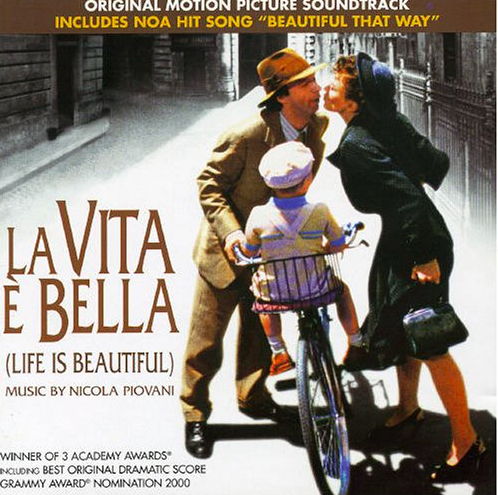Why “La vita é bella” is beautiful

Credits: Public Domain
Have you ever been frustrated at film critics for criticizing your favorite movie of all time? Movie criticism has become a popular source of amusement and can be found in newspaper articles, websites, such as Rotten Tomatoes, and even amateur blog posts. Some amateur movie critics merely evaluate movies without digging deeply into the facets that surround them. Instead of analyzing the big idea, they analyze the “tip of the iceberg.” Upon encountering many criticisms against my favorite movie, Life is Beautiful, originally entitled “La vita é bella,” which made its debut in 1997, I have decided to analyze the big idea myself.
Life is Beautiful is divided into two basic parts. The first part, set in the 1930s, narrates the story of Guido, an Italian Jew, who is a hotel waiter in the 1930s. Director and co-writer Roberto Benigni stars as Guido. This first part of the movie is a silent comedy, recounting the story of how Guido met the love of his life, Dora, and provides viewers with an introduction to his comedic personality. The second part of the movie, set in 1945, is much more controversial and recounts Guido’s unfortunate adventures in a concentration camp, where he and his son, Giosué, are sent. In the death camp, with the main finality of protecting his son, Guido describes the camp as a fictional game, thereby protecting the innocence of his child. He tells Giosué that the first person to get 1,000 points in the game earns a military tank, which is Giosué’s childhood dream. To further prove the game, Guido completes numerous acts of kindness, such as the one of pretending that all the people in the camp are playing a hide-and-seek game, and translating a speech from German to Italian, not knowing one word of German.
There are two main complaints that are directed towards this movie. First, critics relate that Benigni, the protagonist, is overly energetic and treats everything as a joke, while believing that he himself is somehow the reincarnation of Sr. Charlie Chaplin. Second, it is believed that the plot is disrespectful to the Holocaust and is historically inconsistent. These critics relate that it would be impossible to pretend that a death camp, where thousands of people died, was just a game. Yes, these ideas are considerable, yet they merely entail a small picture of the film. What we need, as critics, is a bigger shovel to analyze bigger pictures.
The big picture doesn’t talk about the Holocaust and the outcome of the war, but how a father uses comedy, his mightiest weapon, to sacrifice himself for his son. In response to this, Marvin Hier, Founder of Simon Wiesenthal Center and Holocaust expert, said, “I find it in no way being a desecration of Holocaust. On the contrary, I find it to be affirmation of love and human dignity.” Thus, Life is Beautiful is about the human spirit; it’s about how to rescue the good from the remains of a dream and about hope for a better future. It’s about a misunderstanding that the world would be better if humanity were to be kind. Overall, the story just overlaps the inaccuracies of its plot. Love and hope extend over the historical inconsistencies of the novel. The movie recounts the story of a man who lives for the ones he deeply loves. He fights for what has given him meaning in life: his family. Guido uses his gift of comedy to save the people he praises while sacrificing his own life. The movie creates its own unique plot.
Movie critics should know more about movies before launching words to criticize them. “La vita é bella,” while serving as an historically inaccurate movie, sheds light into cruelty. Winning awards in Jerusalem International Film Festival and the renowned Oscar, this movie has to do more with inner feelings and human emotions than it does with the Holocaust. By no means am I implying that critics should not use their freedom of speech to criticize what they want. I’m just asking for them to carefully analyze something before they launch something public on the web. Besides, the movie proves that life is indeed beautiful. Decode it and find its entire iceberg by yourself.
Sources: IMDb, Rotten Tomatoes

As a senior writing for the POV section, this is Fernando's third and final year as part of The Talon. His passions revolve around development economics,...








